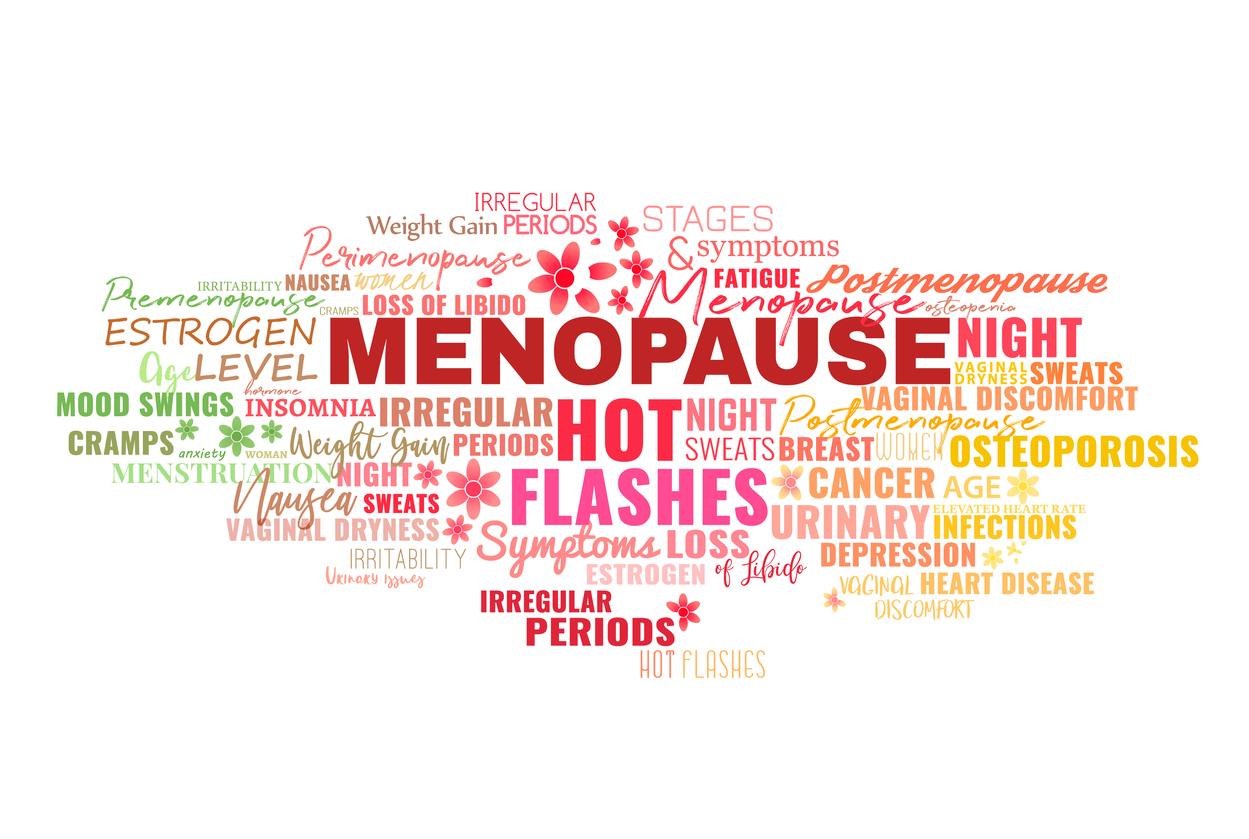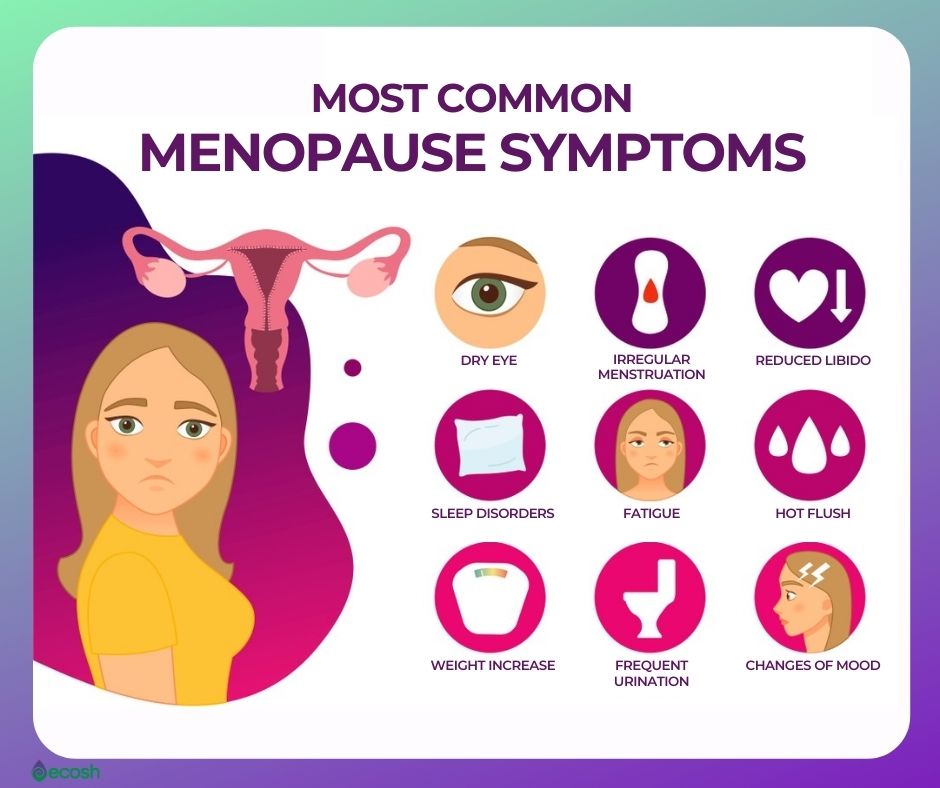Menopause info has become a topic of paramount importance, offering invaluable insights into the profound hormonal changes and symptoms experienced by women as they transition into this new phase of life. Join us as we delve into the intricacies of menopause, empowering you with knowledge and practical guidance to navigate this journey with confidence.
As women enter menopause, their bodies undergo a cascade of hormonal shifts, primarily characterized by a decline in estrogen and progesterone levels. These hormonal fluctuations trigger a myriad of physical and emotional symptoms, including hot flashes, night sweats, vaginal dryness, mood swings, anxiety, and depression.
Understanding these symptoms is crucial for effective management and support.
Definition of Menopause

Menopause is the natural cessation of menstruation, marking the end of a woman’s reproductive years. It is characterized by a significant decline in the production of the hormones estrogen and progesterone.
During menopause, the ovaries gradually stop producing eggs, and the levels of estrogen and progesterone decline. This hormonal shift leads to various physical and emotional changes in the body.
Hormonal Changes During Menopause
The decline in estrogen and progesterone levels during menopause affects various bodily functions, including:
- Menstrual cycle: The ovaries stop releasing eggs, leading to the cessation of menstruation.
- Fertility: The decline in estrogen and progesterone levels makes it difficult for women to conceive.
- Body composition: Estrogen helps regulate body weight and fat distribution. Its decline can lead to weight gain and changes in body shape.
- Bone health: Estrogen helps maintain bone density. Its decline can increase the risk of osteoporosis.
- Mood and cognition: Estrogen and progesterone play a role in mood regulation and cognitive function. Their decline can lead to mood swings, anxiety, and difficulty concentrating.
Symptoms of Menopause: Menopause Info

Menopause, the natural cessation of menstruation, is accompanied by a range of physical, emotional, and psychological symptoms. These symptoms can vary in intensity and duration, and not all women experience the same symptoms.
Physical Symptoms
- Hot flashes: Sudden, intense sensations of heat that spread over the body, often accompanied by sweating and flushing.
- Night sweats: Hot flashes that occur during sleep, leading to disrupted sleep and fatigue.
- Vaginal dryness: Decreased production of vaginal fluids, resulting in discomfort during intercourse and increased susceptibility to infections.
- Osteoporosis: Reduced bone density, increasing the risk of fractures.
- Cardiovascular disease: Increased risk of heart disease and stroke.
Emotional and Psychological Symptoms
- Mood swings: Rapid changes in mood, from irritability to sadness.
- Anxiety: Feelings of nervousness, worry, and unease.
- Depression: Persistent feelings of sadness, hopelessness, and loss of interest.
- Cognitive changes: Difficulty concentrating, remembering, and making decisions.
- Sleep disturbances: Insomnia, difficulty falling or staying asleep.
Diagnosis and Treatment of Menopause
Menopause is diagnosed based on symptoms and a physical exam. Your doctor may also order blood tests to confirm the diagnosis and rule out other conditions.
Treatment options for menopause vary depending on the severity of your symptoms. Some common treatments include:
Hormone Replacement Therapy (HRT)
HRT involves taking hormones, such as estrogen and progesterone, to replace the hormones that your body is no longer producing. HRT can help relieve symptoms such as hot flashes, night sweats, and vaginal dryness.
Lifestyle Changes
Certain lifestyle changes can help manage menopause symptoms. These include:
- Exercising regularly
- Eating a healthy diet
- Getting enough sleep
- Managing stress
Alternative Therapies
Some alternative therapies may help relieve menopause symptoms. These include:
- Acupuncture
- Yoga
- Herbal remedies
Long-Term Effects of Menopause
Menopause can have long-term health implications that women should be aware of and take steps to manage. These include:
- Osteoporosis:Estrogen loss during menopause weakens bones, increasing the risk of osteoporosis, a condition that makes bones fragile and prone to fractures.
- Heart disease:Menopause increases the risk of heart disease due to changes in cholesterol levels and blood pressure.
- Dementia:Some studies suggest that menopause may increase the risk of dementia, including Alzheimer’s disease, although more research is needed to confirm this link.
Managing Long-Term Risks, Menopause info
Women can take steps to manage these long-term risks through lifestyle changes and medical interventions:
- Exercise:Regular weight-bearing exercise helps strengthen bones and reduce the risk of osteoporosis.
- Calcium and vitamin D intake:Ensuring adequate intake of calcium and vitamin D through diet or supplements is crucial for bone health.
- Hormone replacement therapy (HRT):HRT can help alleviate menopausal symptoms and reduce the risk of osteoporosis and heart disease.
- Healthy diet:A balanced diet rich in fruits, vegetables, and whole grains supports overall health and reduces the risk of chronic diseases.
- Smoking cessation:Smoking increases the risk of osteoporosis and heart disease.
- Regular medical checkups:Monitoring bone density, cholesterol levels, and blood pressure helps identify and address any potential health issues early on.
By adopting these measures, women can mitigate the long-term health risks associated with menopause and maintain their overall well-being.
Lifestyle Considerations for Menopause

Menopause can bring about significant changes in a woman’s life, and adopting healthy lifestyle habits can help manage the associated symptoms. These changes encompass dietary modifications, regular exercise, and effective stress management techniques. Additionally, seeking support from support groups and other resources can provide valuable guidance and emotional assistance during this transition.
Dietary Modifications
Adjusting one’s diet can positively impact menopause symptoms. Incorporating foods rich in calcium and vitamin D, such as dairy products, leafy green vegetables, and fortified cereals, supports bone health. Consuming soy products, which contain isoflavones, may alleviate hot flashes and other vasomotor symptoms.
Additionally, limiting processed foods, sugary drinks, and excessive caffeine intake can help regulate mood swings and improve overall well-being.
Regular Exercise
Regular physical activity plays a crucial role in managing menopause symptoms. Engaging in moderate-intensity exercises, such as brisk walking, swimming, or cycling, for at least 150 minutes per week, can help reduce hot flashes, improve sleep quality, and boost mood.
Strength training exercises, such as weightlifting or resistance band exercises, can help maintain muscle mass and prevent osteoporosis.
Stress Management
Managing stress effectively can help alleviate menopause symptoms. Techniques such as yoga, meditation, or deep breathing exercises can promote relaxation and reduce anxiety. Additionally, engaging in activities that bring joy and fulfillment, such as spending time with loved ones, pursuing hobbies, or participating in social groups, can help reduce stress levels.
Support Groups and Other Resources
Joining support groups or connecting with other women going through menopause can provide a sense of community and support. Sharing experiences, offering encouragement, and accessing information from healthcare professionals can be invaluable during this transition. Additionally, resources such as online forums, support hotlines, and educational materials can provide valuable guidance and assistance.
FAQ Corner
What is the average age of menopause?
The average age of menopause is around 51 years old.
How long does menopause typically last?
Menopause typically lasts for around 7 years, but it can vary from woman to woman.
What are some natural remedies for menopause symptoms?
Some natural remedies for menopause symptoms include yoga, acupuncture, and herbal supplements.